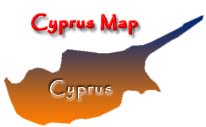Cyprus' rival leaders focus negotiations on EU issues
 Athens/Nicosia - Rival Turkish-Cypriot and Greek-Cypriot leaders met for renewed unification talks on Wednesday, focussing on European issues, officials said.
Athens/Nicosia - Rival Turkish-Cypriot and Greek-Cypriot leaders met for renewed unification talks on Wednesday, focussing on European issues, officials said.
The Mediterranean island has been divided since a Turkish invasion in 1974, with peace talks only resuming in September last year after being broken off in 2004.
The talks, in the buffer zone of Lefkosa in Cyprus, are being held under the aegis of the United Nations.
"The leaders have referred to technical experts who are in particular legal experts because there are some legal questions to be addressed," said UN special advisor Alexander Downer.
The two leaders, Cypriot President Dimitris Christofias and Turkish Cypriot leader Mehmet Ali Talat, will next meet on March 17.
The eastern Mediterranean island has been split since 1974 into a Greek Cypriot south and Turkish Cypriot-controlled north. Turkey invaded the northern third of Cyprus in response to a short-lived coup initiated by the military junta then ruling Greece.
For decades efforts to find a solution have failed, most recently in 2004 when former president Tassos Papadopoulos led the Greek- Cypriot rejection of a UN reunification plan in a referendum.
Turkish Cypriots, on the other hand, had voted overwhelmingly in favour.
Although a final settlement has remained out of reach for decades, mediators are now optimistic that the two rival Cypriot leaders will broker a deal within the year.
Any deal will need to be approved by Cypriots in separate, simultaneous referendums.
The two sides have agreed in principle to a settlement based on a federation, but the Turkish Cypriots want a looser federation, while the Greek Cypriots want a stronger central government and more limited regional powers which will prevent the island falling back into partition.
There is disagreement on whether a bi-zonal federation would permit free movement or try to enforce the ethnic majorities in the north and the south.
Christofias said the Greek Cypriot side was facing major problems in the settlement of disputed property claims, one of the most complex chapters in the negotiations.
Local reports said that after weeks of intense negotiations the leaders were unable to broker an agreement on the property issue.
Turkish Cypriots are proposing to exchange or compensate properties belonging to Greek Cypriots situated in its territory, or to return them under certain conditions.
The Greek Cypriot government, however, argues that property decisions should only be made by the owners.
At the time, 160,000 Greek Cypriots and 40,000 Turkish Cypriots were uprooted from their settlements and forced to seek shelter in opposite ends of the island.
This has led to property disputes where thousands of individuals stake a claim to land and homes seized decades ago.
The ongoing dispute in Cyprus also threatens Turkey's aspirations of joining the EU. Ankara started EU entry talks in 2005, but the Cyprus problem has proved a main stumbling block in negotiations. (dpa)